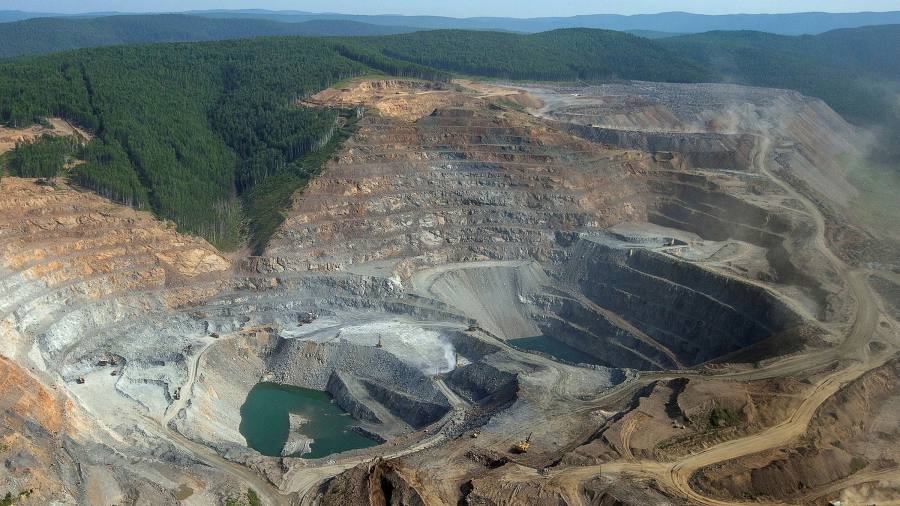[ad_1]
The fraud charges faced by Petropavlovsk co-founder Pavel Maslovskiy came after one of the company’s non-executive directors asked Russia’s FSB to investigate a property deal, according to a document seen by the Financial Times.
Maxim Kharin, the boardroom nominee of rival Russian gold miner and the group’s biggest shareholder UGC, filed an application with the country’s top domestic security service on December 15 requesting that it investigate a Petropavlovsk subsidiary’s 2018 purchase of an office building from Mr Maslovskiy’s son.
In his complaint, Mr Kharin alleged that Alexey Maslovskiy had sold the building to Pokrovsky Rudnik, a Petropavlovsk subsidiary, for an inflated price of Rbs218.4m ($2.9m), or Rbs97,832 per square metre. He went on to ask the FSB “to initiate a criminal case if there are grounds for it and bring the culprit to justiceâ€.
“According to open sources of information, the average cost of real estate in the town of Blagoveshensk is significantly lower. With this in mind, there is reason to believe that this deal may have been concluded at an inflated price, which may have had a negative impact on the interests of the company and its shareholders,†the application said.
On December 24 — the day before his birthday — Mr Maslovskiy was arrested in Moscow and charged with embezzlement. His arrest was quashed at a hearing in Moscow on Monday but Mr Maslovskiy will remain in detention pending a hearing.
Mr Kharin’s complaint to the FSB marks the latest twist in a bitter corporate battle that has pitched Mr Maslovskiy and his supporters against Konstantin Strukov, the billionaire owner of UGC.
Petropavlovsk, a FTSE 250 company with a market value of almost £1.1bn, is one of Russia’s biggest gold producers. It was plunged into turmoil in June after Mr Maslovskiy was ousted as chief executive by UGC and a group of other shareholders.Â
Mr Maslovskiy claims UGC, which bought 24 per cent of Petropavlovsk last year, orchestrated his defenestration. He also accused Mr Strukov of trying to take control of the company without paying a takeover premium and has asked regulators in the UK and Russia to investigate.
UGC and Mr Strukov have always denied Mr Maslovskiy’s claims.
In November Petropavlovsk launched an investigation into related-party transactions carried out by the company over the past three years. This was prompted by a shareholder resolution passed last year.
Pavel Maslovskiy purchased the building from Chinese developers in 2009, immediately leasing it back to subsidiary Pokrovsky Rudnik, according to people with knowledge of the deal. Pokrovsky had originally planned to buy the building but a lack liquidity after the global financial crisis meant it was strapped for cash, they said.
When Mr Maslovskiy became a senator for the Amur region in 2011, the building was passed on to his son. A third party valuation in December 2017 said the property was worth Rbs218.4m.
Mr Maslovskiy and his son declined to comment but Sir Roderic Lyne, who was Petropavlovsk’s chairman from 2018 to 2020, said the transaction had been recorded in the company’s annual report in 2018 and 2019.
Twice weekly newsletter

Energy is the world’s indispensable business and Energy Source is its newsletter. Every Tuesday and Thursday, direct to your inbox, Energy Source brings you essential news, forward-thinking analysis and insider intelligence. Sign up here.
“The group entered into the transaction in March 2018, under the previous board (of which Pavel Maslovskiy was not a member at that time), with payment to be made in tranches up to June 2019,†he said.
“It was approved as a related-party transaction by the audit committee and the board (which I then chaired) in April 2019. The group’s auditors, Deloitte, reported to the audit committee that a third-party valuation had supported the consideration payable for the propertyâ€, he said.
Petropavlovsk declined to comment. Mr Kharin did not respond to emails and phone calls seeking comment.
The company noted in a statement this month that Mr Maslovskiy was “reported to have been arrested in Russia on a charge of embezzlementâ€.
“The proceedings will be monitored and, to the extent that they impact on or involve the group, we will update the market accordingly,†it said.
[ad_2]
Source link





